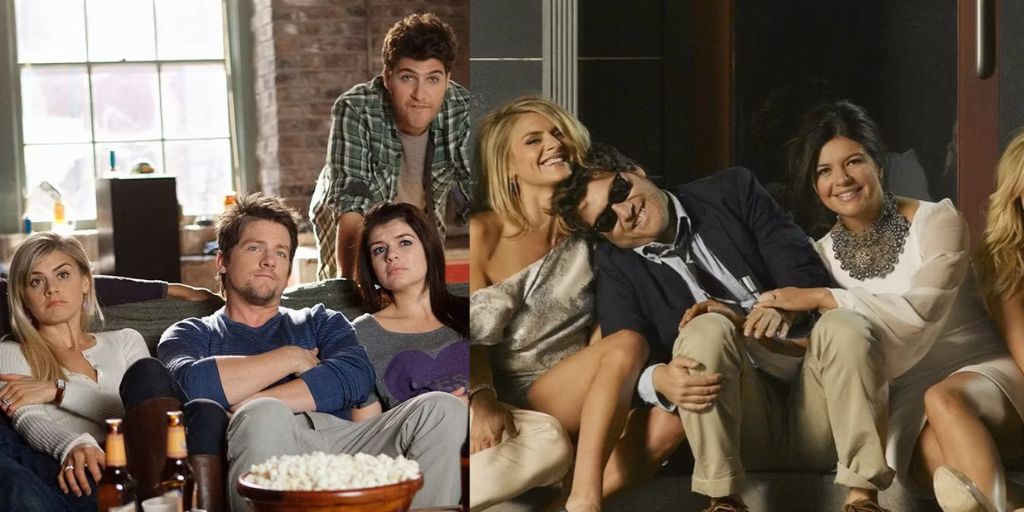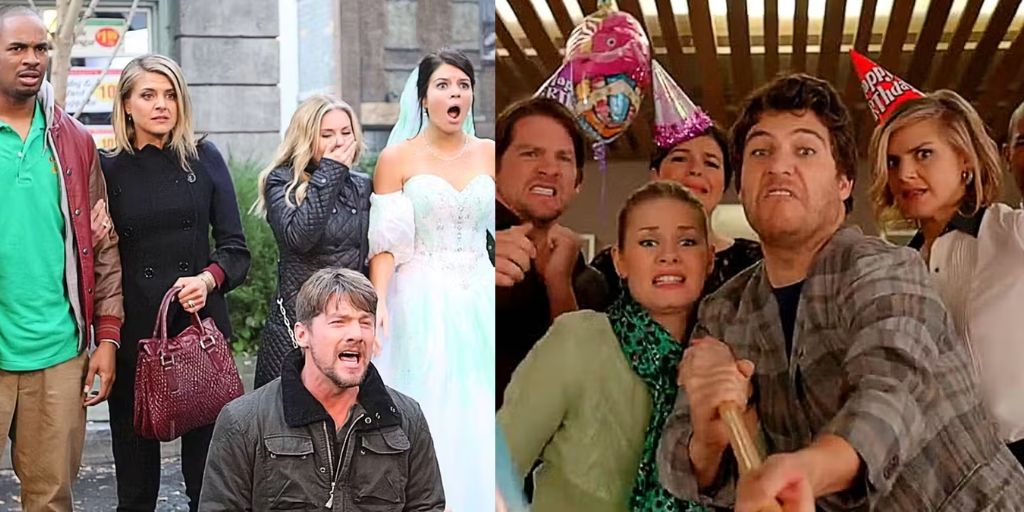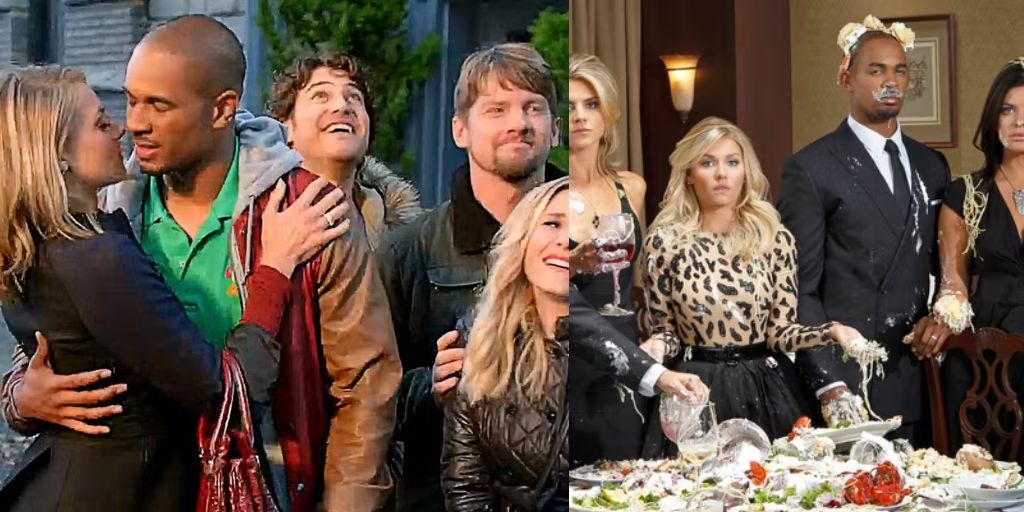In the past, ABC took bold chances with new comedy shows, often leading to innovative and memorable content. During this era, we saw shows like Don’t Trust the B—- In Apartment 23 and Cougar Town that introduced fresh elements, breaking away from traditional sitcom formats.
One of the standout shows from this period was Happy Endings, created by David Caspe. The show focused on a group of six friends living in a city, and while it drew comparisons to Friends and How I Met Your Mother, it carved out its own niche by playfully addressing and deconstructing the familiar sitcom tropes set by earlier shows.
From its debut, Happy Endings quickly distinguished itself from other sitcoms of the time. Unlike many sitcoms, it did not rely on a laugh track. Instead, it engaged viewers with its sharp, fast-paced dialogue and quick-witted humor. The show’s ability to deliver clever jokes rapidly kept audiences hooked.
Despite running for three seasons, Happy Endings deserved more recognition and success. Unfortunately, ABC mishandled the show’s broadcast.
The show faced numerous issues, including changes in its schedule, episodes being aired out of order, and some episodes never being broadcast. These problems significantly impacted its potential audience and success.
The Magic of ‘Happy Endings’ Relies on Its Unique Friend Group
One of the main reasons Happy Endings resonated with viewers was its diverse and unlikely group of friends. The show featured Alex (Elisha Cuthbert) and Dave (Zachary Knighton), a former couple who called off their wedding when Alex was taken away by an ex-boyfriend.
They now try to rebuild their friendship. Alex’s sister Jane (Eliza Coupe) and her husband Brad (Damon Wayans Jr.) initially considered having a baby but soon realized there were other important aspects of their relationship to focus on first. Max (Adam Pally) and Penny (Casey Wilson), both struggling with adult responsibilities, navigate life with a humorous and carefree attitude.
The show’s charm and appeal stemmed from the actors’ strong portrayals of their characters. Alex, played by Cuthbert, may appear to be a stereotypical blonde airhead, but she is also a determined and successful business owner.
Dave, portrayed by Knighton, is a likable character who faces challenges but slowly finds his path in the culinary world. Brad, played by Wayans Jr., is a sensible yet goofy individual who manages to balance his corporate job with his personal life.

Max, brought to life by Pally, is a straightforward and open-minded character who occasionally explores the idea of a relationship. Penny, represented by Wilson, embodies the millennial experience of struggling to figure out life through dating and invented expressions. Lastly, Coupe’s portrayal of Jane, who is obsessively perfect, adds another layer to the show’s dynamic.
‘Happy Endings’ Broadcast Was Handled Poorly
Before its official release, ABC made some questionable decisions regarding the airing of Happy Endings. They chose to broadcast episodes out of order and in pairs, which confused viewers.
For instance, the pilot episode was shown at an unexpected time, followed by an episode that was not the second one in the intended sequence. From then on, the order of Season 1’s episodes seemed random and inconsistent.
Caspe mentioned in an interview with Hollywood Reporter that the studio aimed for the episodes to be more stand-alone, allowing viewers to jump in without needing context. However, Happy Endings was both a sitcom and a serialized comedy, making it crucial for viewers to follow the episode sequence to understand the storyline.
The issues did not stop with the first season. Seasons 2 and 3 also experienced significant scheduling changes and disruptions. For example, what was intended to be the second-to-last episode of Season 2 was moved to the middle of Season 3.
While home media releases eventually fixed some of these issues, the damage was done. Happy Endings struggled with low ratings and was cancelled after its third season in 2013, leaving many storylines unresolved.
‘Happy Endings’ Is Anything but Dead
Despite its cancellation, Happy Endings has maintained a devoted fan base that remains active on social media. Fans have kept the show’s spirit alive through various efforts. In 2016, the cast reunited for a table read of “Happy To Be Here,” also known as Episode 401.
This special episode humorously concludes that the entire series was just a dream of Dave’s before his wedding. During the 2020 pandemic, the cast also came together for “And The Pandemmy Goes To…” where they held a video call to stay connected during quarantine.
Wilson noted that there have been several attempts to revive the show, but these efforts have failed due to conflicts with the cast’s other projects. Marry Me, another show created by Caspe, featured Stephen Guarino as Derrick, Penny’s other gay friend, suggesting a shared universe.

More recently, WandaVision included a reference to Happy Endings. The show’s 2010s-themed episode, “Breaking the Fourth Wall,” paid homage to Happy Endings with its mockumentary style, and the seventh episode’s opening credits directly referenced the show, highlighting its lasting cultural impact.
Although its premise might have seemed conventional, Happy Endings quickly proved to be distinct with its unique approach. The show featured great cold opens, memorable guest stars like Megan Mullally and James Wolk, and notable seasonal episodes.
If ABC had handled it better and kept it in its intended order, Happy Endings might have had a longer run. It remains a cult classic, available to stream on Hulu in the U.S.




